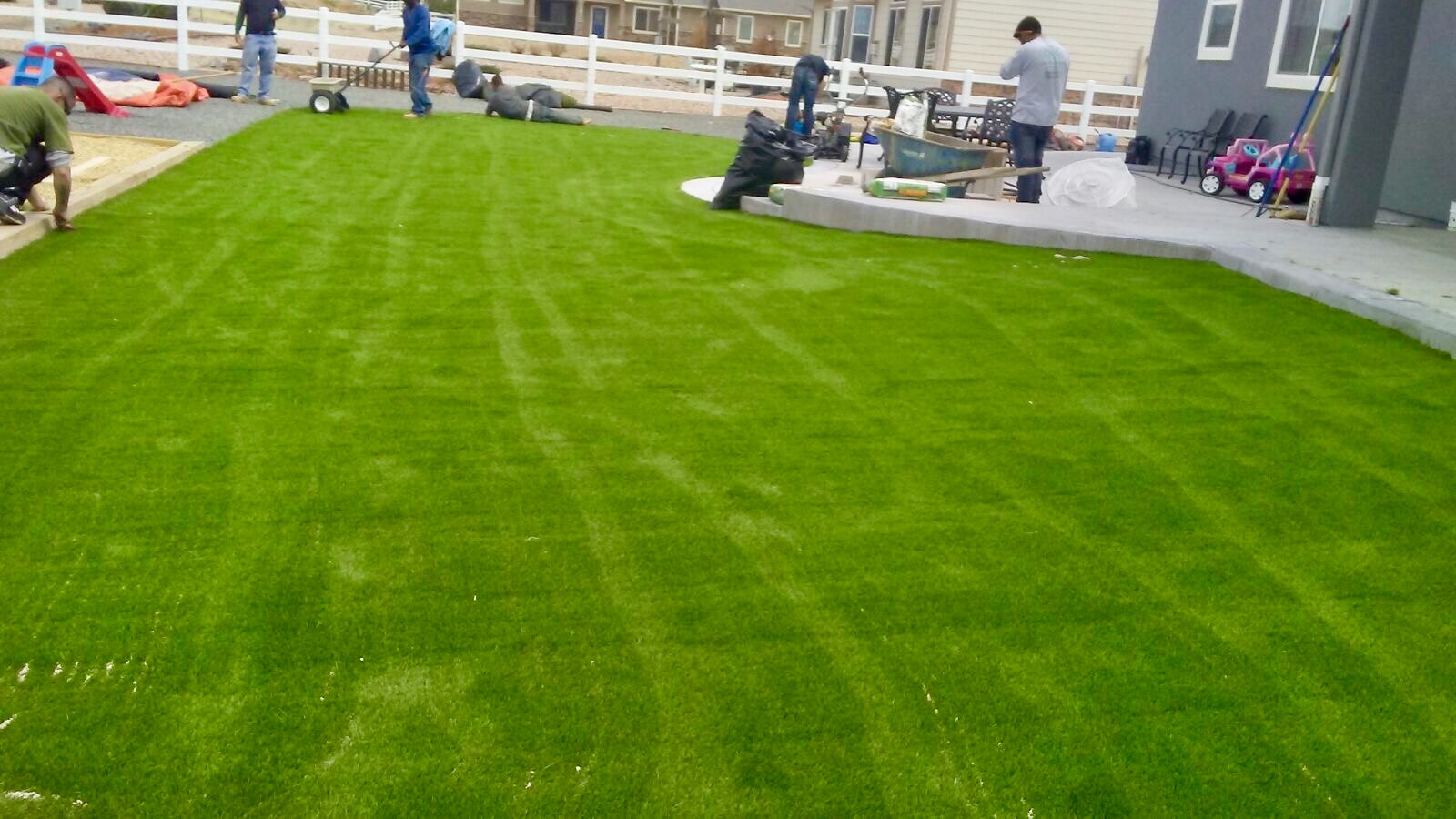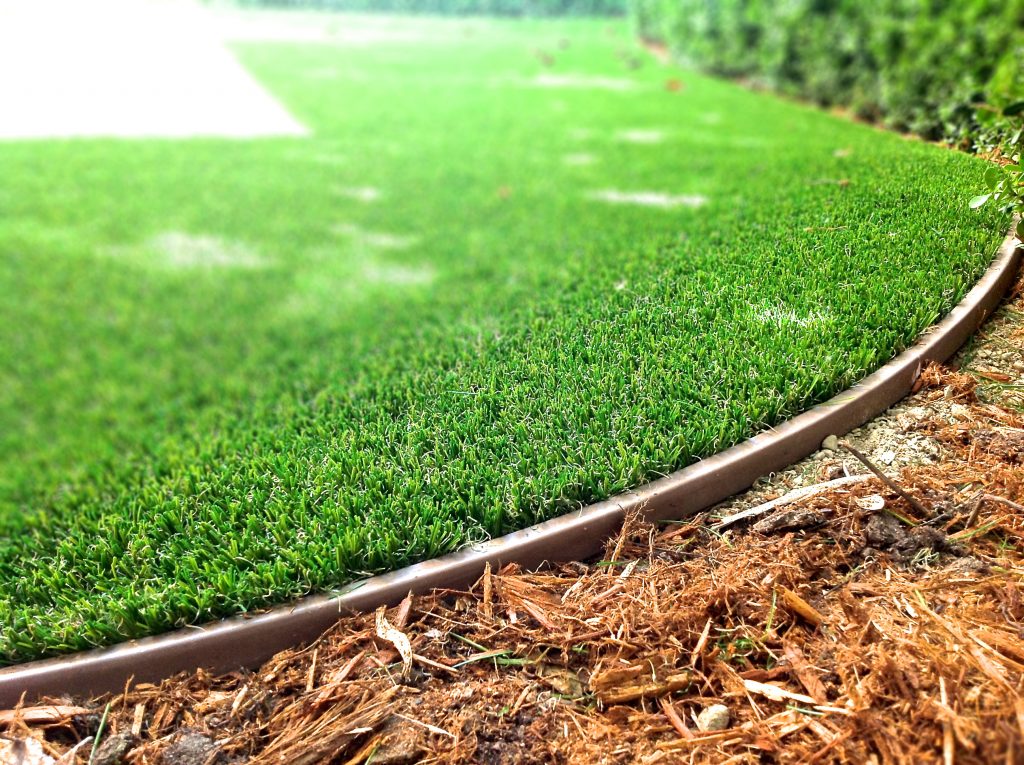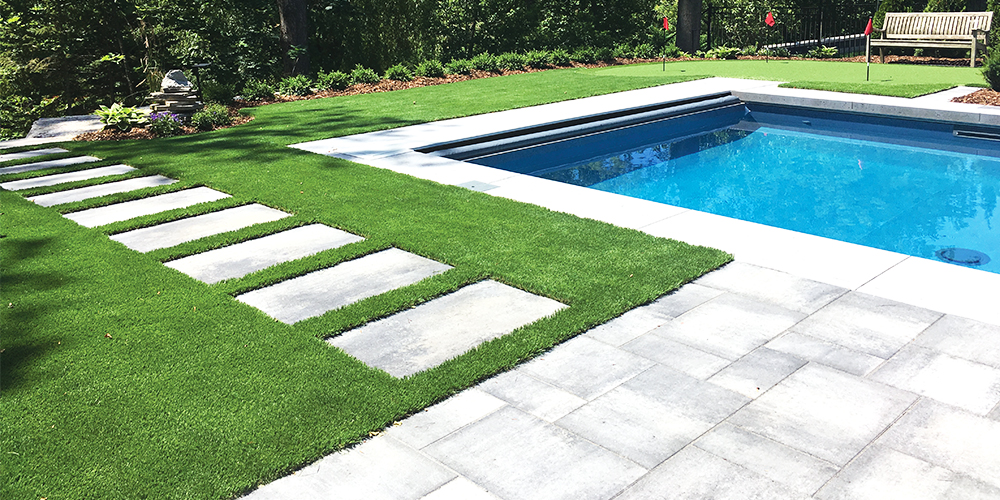Leading Phoenix Turf Companies Offering High-End Synthetic Lawn Solutions
Leading Phoenix Turf Companies Offering High-End Synthetic Lawn Solutions
Blog Article
Delve Into the Environmental Benefits of Opting for Artificial Lawn Solutions
The fostering of synthetic grass solutions presents an engaging opportunity to attend to pressing environmental difficulties. By dramatically reducing water usage and decreasing the application of hazardous chemicals, these alternatives not only advertise lasting landscaping however also secure neighborhood environments. Moreover, the lower carbon footprint related to lowered upkeep activities adds to a much more lasting method to land management. The ramifications of these benefits prolong past plain preservation initiatives, increasing questions about their lasting impact on environment preservation and overall eco-friendly equilibrium. Discovering these measurements exposes an intricate interaction worth considering.
Water Conservation Perks
One of one of the most considerable advantages of synthetic grass is its capacity to save water. Traditional turf yards call for significant watering, particularly in locations vulnerable to drought or water limitations. On the other hand, fabricated grass does not require watering, substantially minimizing the total need for water sources. This function is particularly valuable in arid areas where water scarcity is a pressing worry.
By eliminating the requirement for normal watering, synthetic grass adds to sustainable landscape practices and aids mitigate the ecological effect of extreme water consumption. Additionally, the conservation of water reaches the decrease of runoff, which can bring about soil erosion and river contamination.
Additionally, the installment of man-made turf permits homeowners and municipalities to allot water resources much more efficiently, focusing on vital uses such as drinking water and farming. The shift in the direction of fabricated turf not only promotes liable water usage yet also straightens with broader environmental goals targeted at preserving natural deposits.
As areas progressively prioritize sustainability, the water preservation benefits of man-made grass provide a compelling instance for its adoption in commercial and residential landscape design projects.
Minimized Chemical Use
The shift to fabricated turf dramatically reduces the dependence on chemical therapies typically used in all-natural turf upkeep. Conventional turf administration generally includes the application of pesticides, plant foods, and herbicides to promote growth and control pests. These chemicals can posture dangers to human wellness, local wild animals, and the environment, adding to soil and water contamination.
In comparison, synthetic lawn gets rid of the requirement for these damaging materials. By minimizing the release of artificial substances right into the environment, man-made grass promotes healthier dirt and water systems.
Furthermore, the absence of chemical overflow connected with synthetic grass installations assists safeguard regional rivers from contamination, supporting water life and keeping biodiversity. Turf installation phoenix az. As areas increasingly focus on sustainable techniques, opting for fabricated grass offers a practical option that aligns with ecological preservation goals. Via this shift, home proprietors can take pleasure in rich environment-friendly areas without jeopardizing eco-friendly health and wellness, leading the way for a more sustainable future
Lower Carbon Footprint

In addition, the installment go to this site of synthetic grass can lead to significant water preservation. Natural lawns require substantial amounts of water for watering, which not just contributes to the carbon footprint related to water removal and treatment however likewise stress local water resources. In contrast, synthetic grass needs marginal upkeep, needing no watering, thus substantially reducing water use and its linked power costs.
Additionally, the longevity of man-made lawn adds to its lower carbon effect. With a life expectancy of as much as 15 years or more, the need for constant substitutes is reduced, causing less waste and lower energy usage in production and disposing of standard grass options. In general, synthetic grass provides a lasting alternative for ecologically mindful landscaping.
Habitat Conservation
Environment preservation is an important consideration in the discussion over landscaping selections, specifically when comparing man-made lawn to natural turf. All-natural grass yards frequently need substantial maintenance, consisting of making use of chemicals, plant foods, and herbicides, which can negatively affect local communities. These chemicals can leach into read here the soil and rivers, hurting native plants and animals and interrupting local environments.
Artificial lawn eliminates the need for harmful chemicals, therefore securing neighboring wildlife and preserving the honesty of surrounding communities. The setup of man-made lawn can lead to the conversion of previous yard locations right into more biodiverse landscapes, such as pollinator gardens or indigenous plant areas, which can support local wild animals.
Inevitably, the shift to synthetic grass not only conserves water and lowers maintenance efforts however additionally cultivates a much more harmonious partnership in between human activities and the natural surroundings, advertising habitat conservation in the procedure.
Long-Term Sustainability
Long-term sustainability is a vital aspect in evaluating the advantages of synthetic grass over standard grass yards. Among the most significant advantages of synthetic grass is its longevity; it can last up to 15-20 years with very little maintenance, whereas natural lawn needs frequent reseeding and replacement. This durability decreases the need for continuous resources, such as water, plant foods, and chemicals, which are essential for maintaining a healthy and balanced turf yard.
Additionally, fabricated lawn adds to a reduction in carbon emissions connected with lawn care equipment. Conventional yards usually require gas-powered mowers, leaners, and blowers, all of which contribute to air contamination. Arizona artificial turf. On the other hand, synthetic grass eliminates the requirement for such equipment, promoting a cleaner setting
Moreover, the production of synthetic grass progressively utilizes recycled materials, boosting its sustainability profile. As suppliers take on environment-friendly practices, the environmental footprint of artificial grass continues to reduce.

Conclusion
The adoption of synthetic grass remedies presents substantial environmental advantages, consisting of considerable water conservation, decreased reliance on hazardous chemicals, and a lower carbon impact. Fabricated turf aids in maintaining all-natural habitats by decreasing land disruption and promoting long-term sustainability through the use of long lasting materials. Jointly, these aspects underscore the capacity of synthetic grass to contribute favorably to ecological health and offer a feasible option to conventional landscaping techniques in a significantly resource-conscious world.
In comparison, fabricated lawn does not need watering, substantially decreasing the general demand for water sources. By minimizing the launch of synthetic compounds into the Home Page ecological community, fabricated grass advertises healthier dirt and water systems.
In addition, the setup of synthetic turf can result in significant water conservation. In contrast, fabricated turf requires minimal maintenance, calling for no watering, thereby significantly decreasing water use and its associated power costs.

Report this page